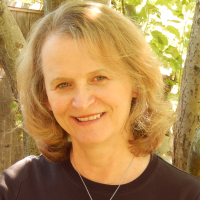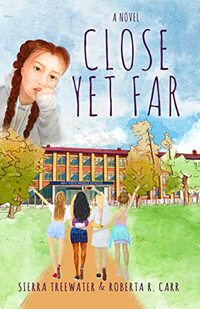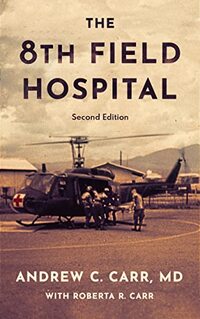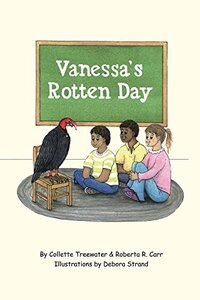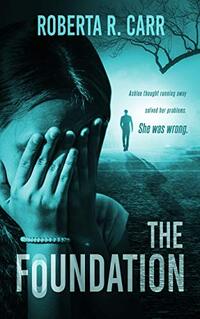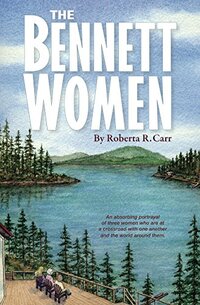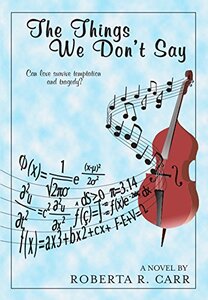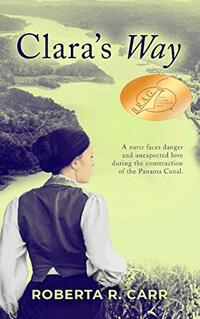Roberta R. Carr Interview Published on: 25, Nov 2021
 What is the name of your hometown?
What is the name of your hometown?
I grew up in a suburb of Los Angeles, California called Bellflower.
Who all are a part of your family? How critical are they of your writing?My machinist dad and nurse mother have been dead for many years but both would have been proud of my accomplishments. I am a middle child with two brothers. The older one reads my novels. My wonderful husband and two daughters are my closest advisors. They beta read my work, and have made me a better writer.
When were you first drawn to writing?I’ve kept a journal off and on since childhood to work out my feelings, and have written several short stories just for fun. At age 53, I retired from corporate life to write novels full-time.
Do you remember the first book you ever read?What was it about? I don’t remember the first book. I treasure Nevil Shute’s A Town Like Alice, Colleen McCullough’s The Thorn Birds, as well as George Orwell’s Animal Farm and Harper Lee’s To, Kill a Mockingbird. I never pass up a James Michener saga, a Ron Chernow biography, or a Liane Moriarty story. David McCullough’s The Path Between the Seas inspired my fifth novel, Clara’s Way.
How much research did you do before writing your thriller novel, The Foundation?As a novelist who enjoys writing about social issues, I scan the media for ideas. One headline punched me in the gut. Vic Lee from KGO-TV wrote a story about a 14-year-old girl who was kidnapped and forced into prostitution at a hotel near my home. That article (and others like it) inspired The Foundation. My daughters took me clubbing in San Francisco so I could closely observe the partying crowd. I also traveled to Nevada’s Mustang Ranch to interview a prostitute, which shaped the story in unexpected ways.
Where do find most of your inspiration? Or when do you feel most inspired to write?Inspiration is everywhere; one just needs to open her eyes and get curious. In 2008, my best friend and I traveled to Italy for a spa vacation in Tuscany. We also visited the Cinque Terre and stayed three nights in Vernazza, one of five charming villages on the Ligurian coast. The place was magical and left an indelible mark on my life. Five years later, I published my first novel, The Vernazza Effect, the story of a woman’s unforgettable journey to find her destiny. On that same trip, I was on a Portofino-bound boat and saw three women—mother, daughter, granddaughter—sitting together. I studied their faces, wondering about their lives back home. What brought three generations to Italy? Were they as happy as they appeared? Were they close? Did they have conflict? What were their struggles? With their permission, I took their picture and placed it in my inspiration folder when I returned home. Eight years after that photo was taken, I published The Bennett Woman, a portrayal of three women who are at crossroads with one another and the world around them.
What challenges did you face taking forward the story of Lilia Bennett-Parker and Matthew Campbell from "The Bennett Women" to "The Things We Don't Say"?I knew I’d write a sequel as I was putting the finishing touches on The Bennett Women so I intentionally created a mystery around Lilia and Matt’s future. Lilia lived a sheltered life and Matt kept secrets so it was fun exploring their budding relationship in the context of those facts. Also, giving Lilia two loves–music and Matt—created conflict. Tossing a famous composer, Eduardo Santana, into the mix created yet another layer of drama to entertain readers.
What is your most unforgettable moment with a fellow traveler on a flight?I was flying to Boston from California to visit The New England Conservatory of Music for research on The Things We Don’t Say. I had the good fortune to sit next to a 13-year-old boy who was enrolled in a summer program at the Berklee College of Music. I chatted with him for hours, probing his dreams and challenges. That conversation allowed me to flesh out Lilia’s character in exciting ways.
Who inspired the character of Dr. Andrew C. Carr, a young medical officer in "The 8th Field Hospital"?This book is a memoir of my husband’s real-life experience as a doctor in the Vietnam war. I didn’t know Andy at the time and loved listening to his unique stories. After capturing a few in writing, I knew we had a book. It took a lot of nudging from me, seven years, and a trip to Vietnam to finish the collection.
What are some thriller novels one should read before writing one?I enjoyed Jillian Flynn’s Gone Girl. John Grisham captured my interest with A Time to Kill and The Pelican Brief. Patricia Highsmith’s The Talented Mr. Ripley is a favorite.
What is one piece of advice that you've read in a book that has stuck with you for life?In my early attempts at writing fiction, I always painted myself into a corner until I came across Jack M. Bickham’s book, Scene & Structure. He taught me how to write fiction with logic and readability. I named a character after him (Jack Thornton from The Vernazza Effect) in gratitude.
What are the strangest things that you have experienced while hiking?I enjoy paths less traveled and stumbling across something unexpected such as a deer family nibbling grass in a meadow or a hillside of California poppies. The strangest experience occurred when a girlfriend and I got lost on a Sedona trail and couldn’t find our car. A kind stranger drove us around until we located it.
What are the most powerful and insightful short stories that you have read?Earnest Hemmingway’s Hills Like White Elephants fascinates me. How he could write that story without mentioning abortion a single time? The tension he created between the couple is riveting.
How many plot ideas are just waiting to be written? Can you tell us about one?I own a book by Christopher Booker called The Seven Basic Plots. The first step I take when starting a new novel is deciding what kind of story I want to tell. Is it a Rags to Riches tale? Overcoming the Monster? A Quest? Tragedy? Rebirth or Voyage and Return? Do I want to write Comedy? Once I know the answer, I have a compass to maintain focus. Knowing Clara’s Way was a Voyage and Return story helped me write an authentic ending.
How were you first introduced to AllAuthor? Do you have any feedback?My cousin, Gloria Zachgo, introduced me to your website. Gloria is a talented writer who found your services helpful to market her work. I couldn’t agree more. We indie authors appreciate you!
Share Roberta R. Carr's interview
Roberta R. Carr grew up in a suburb of Los Angeles, California called Bellflower. She has kept a journal off and on since childhood to work out her feelings. After a rewarding career in health care, she became a full-time writer. Her book, "The 8th Field Hospital" is a memoir of her husband’s real-life experience as a doctor in the Vietnam war.
